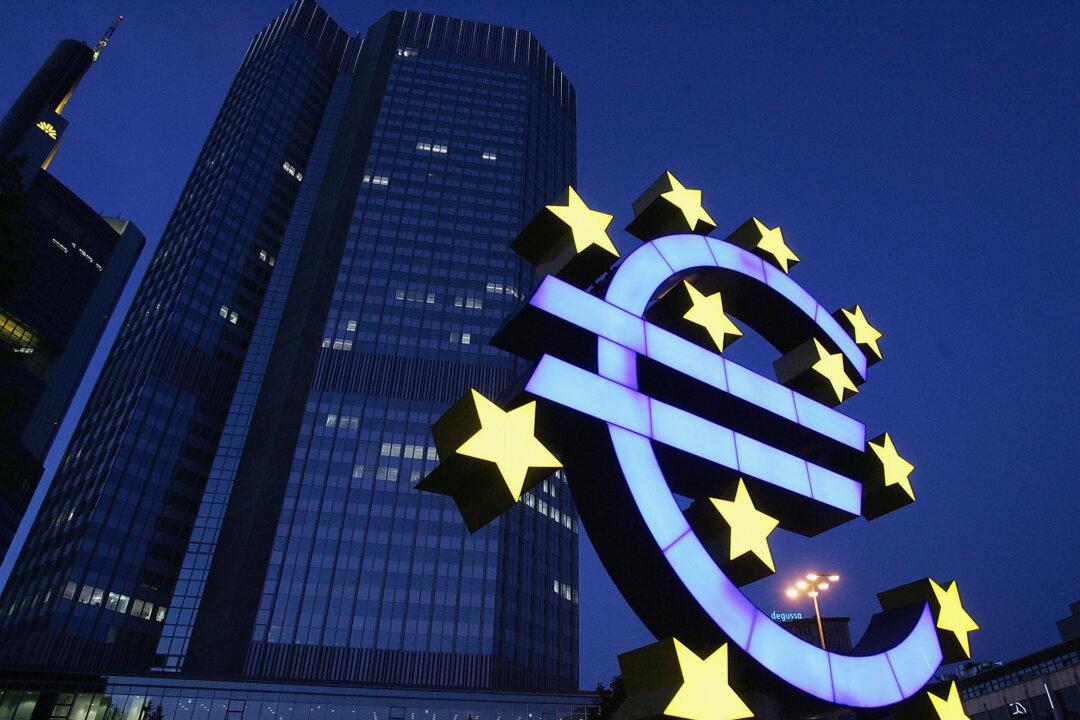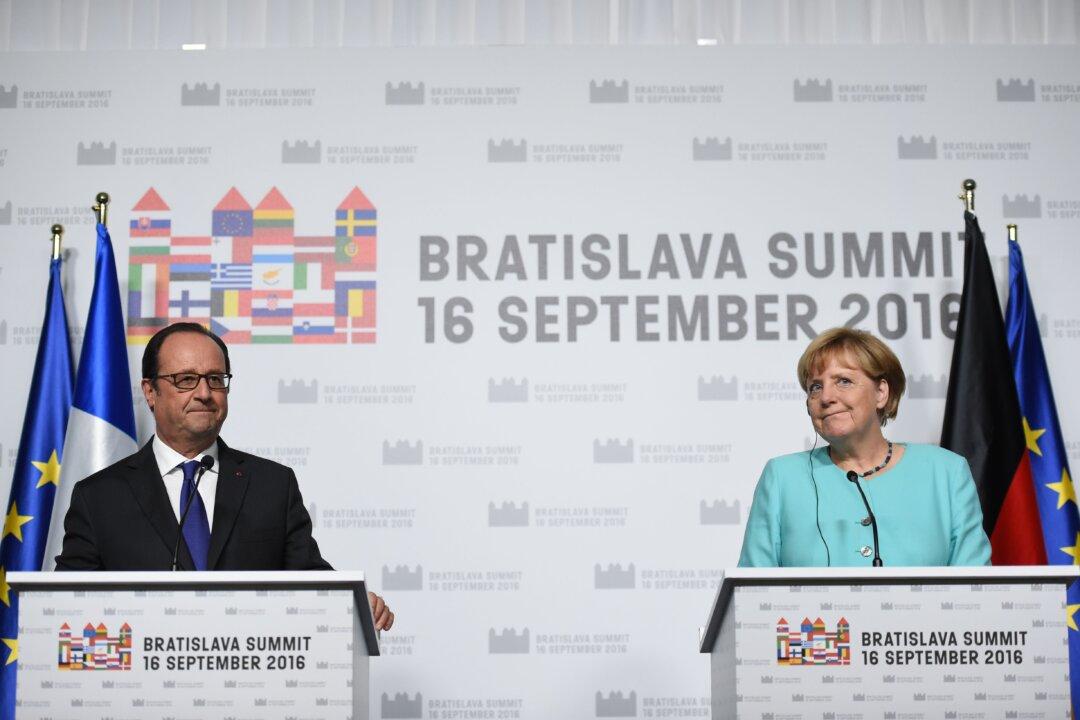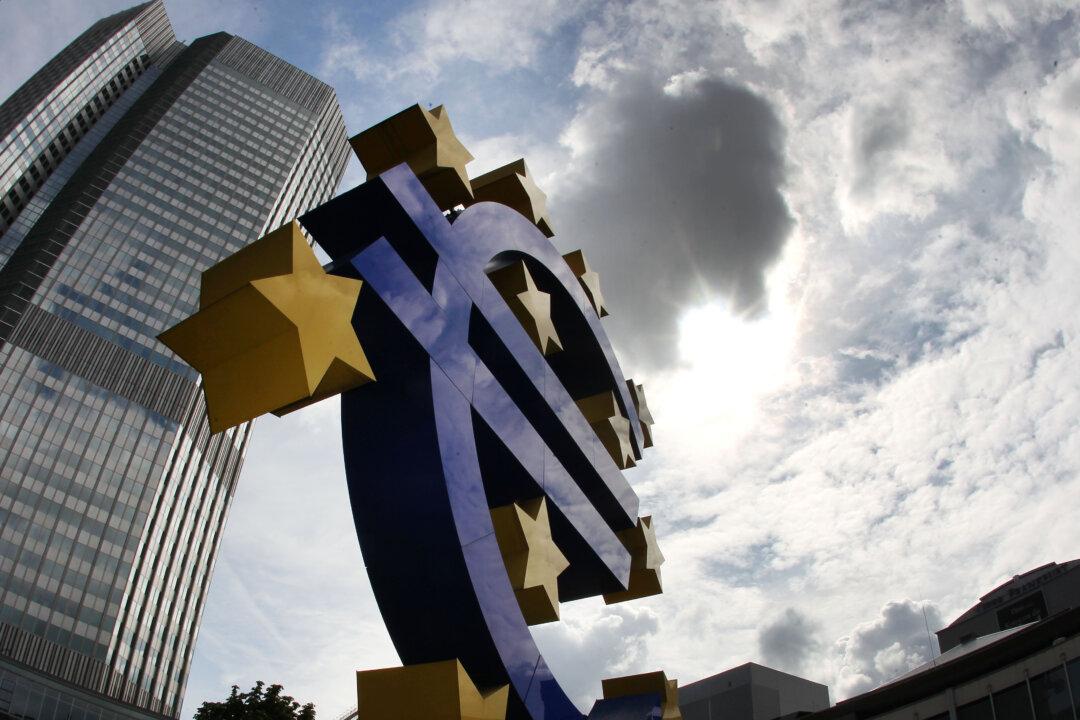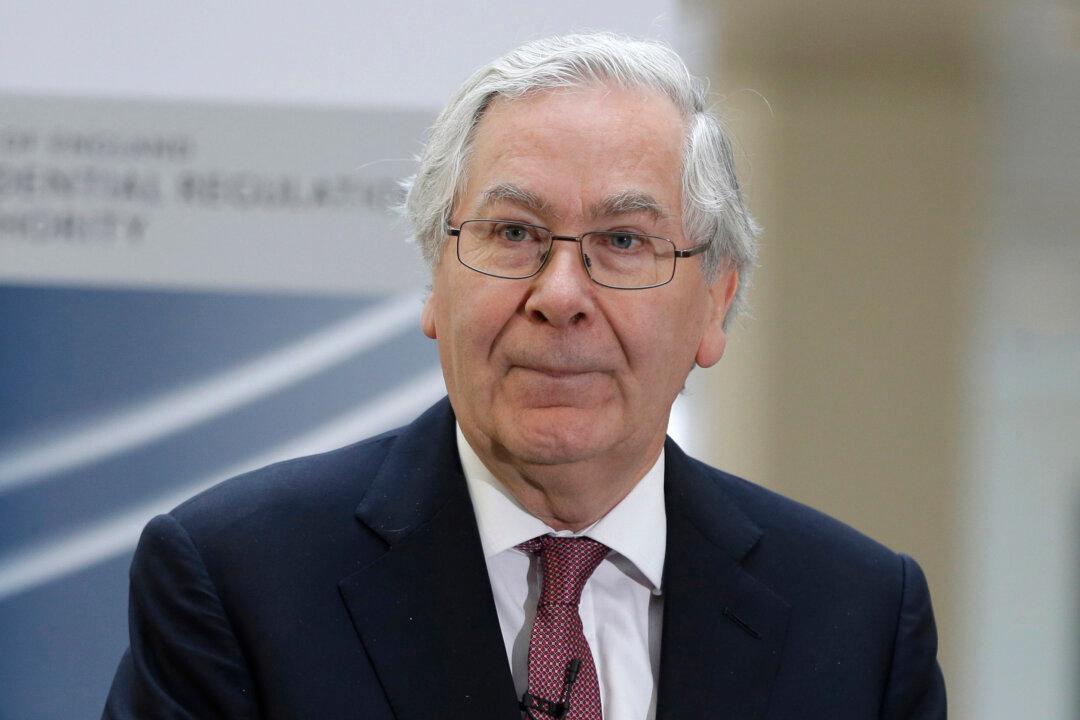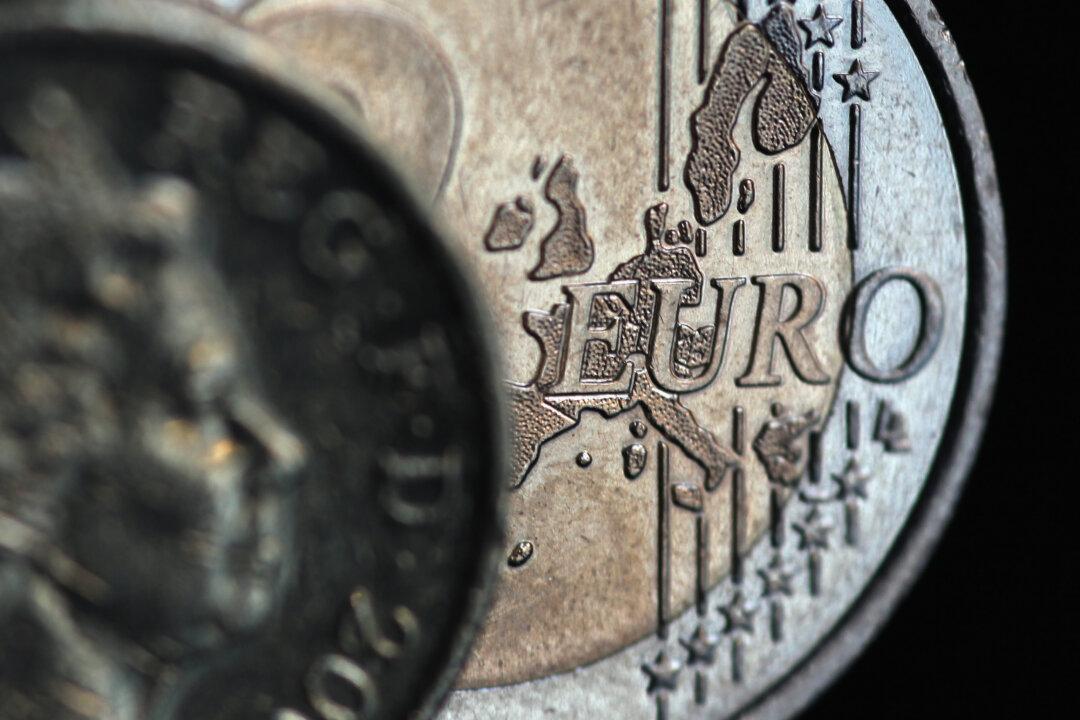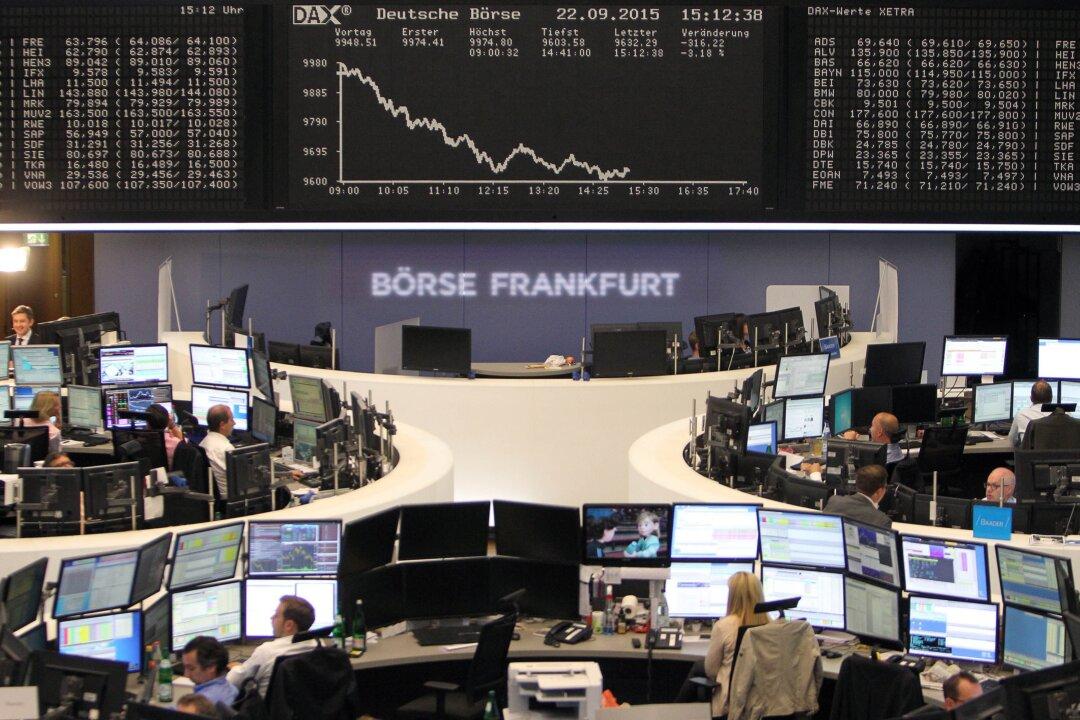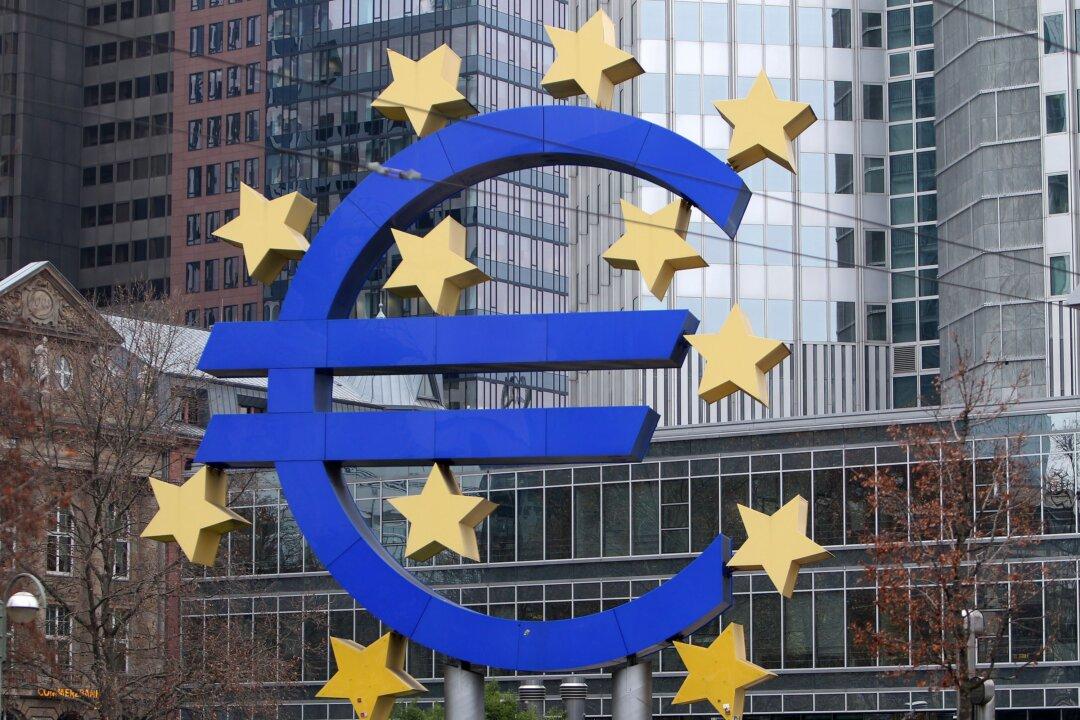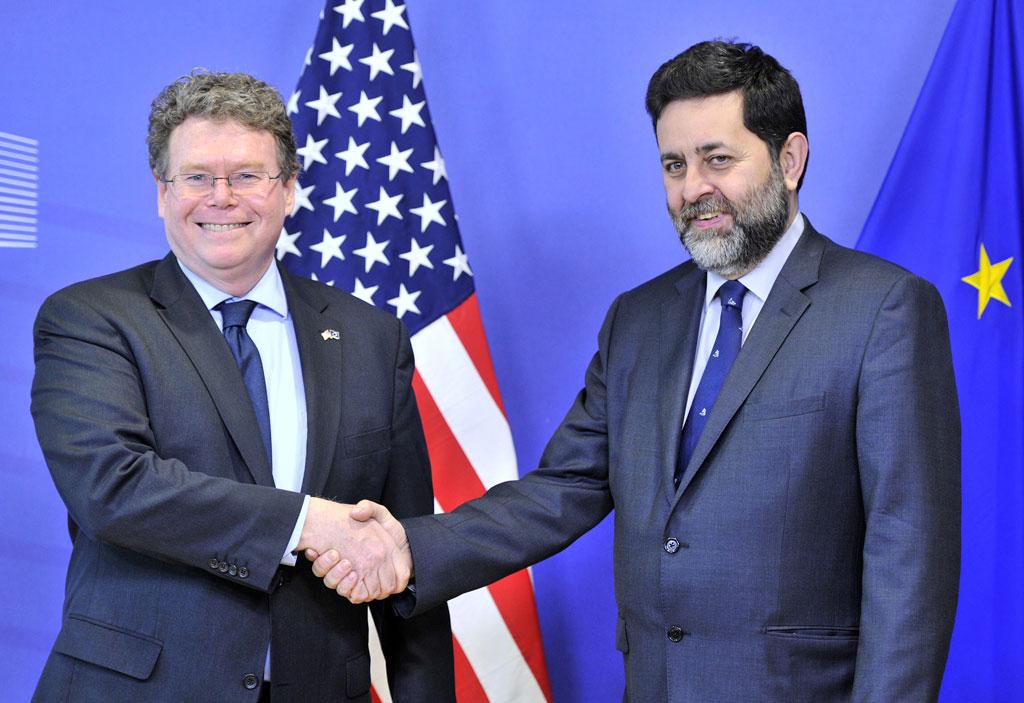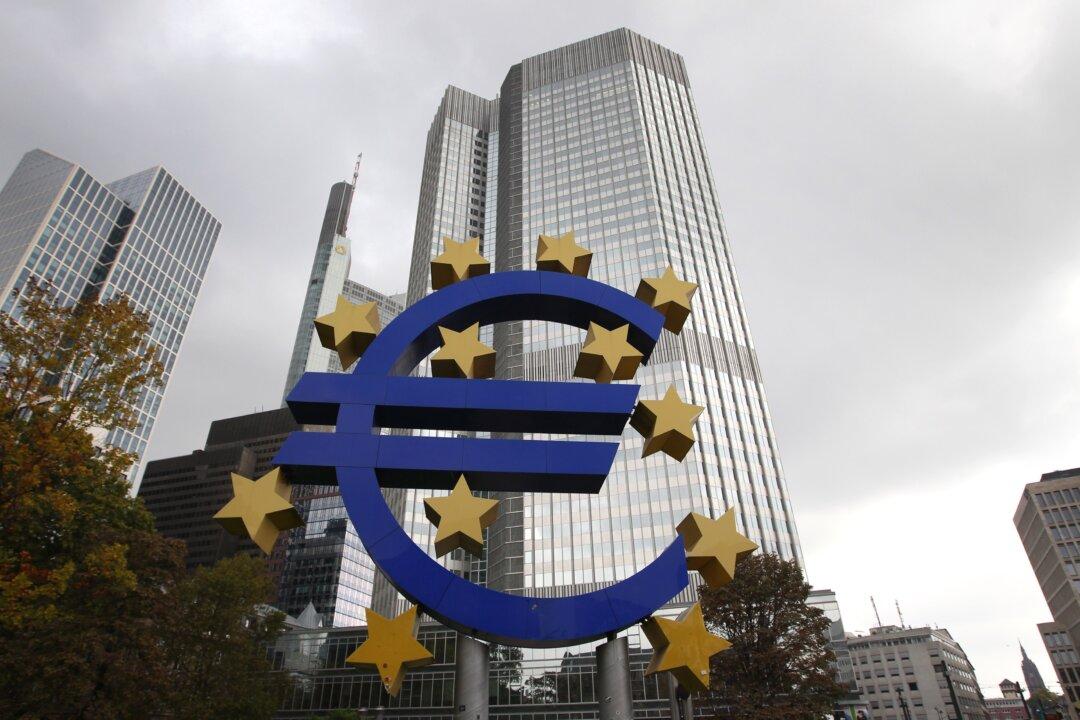Focus
EU economy
LATEST
Eurozone Economy Regains Size of 2008 but Remains Shaky
It’s been a long and tortuous journey, but the eurozone economy is finally back to the size it was before the global financial crisis.
|
Ex-Bank of England Chief Says Euro a ‘Very Serious Problem’
The European single currency is a serious problem for Britain whether or not the country leaves the European Union, a former governor of the Bank of England said Sunday.
|
Greece Will Overcome Its Financial Crisis, Says Greek Consul General Georgios Iliopoulos
Mark Twain’s immortal words, “The reports of my death have been greatly exaggerated,” came to my mind the minute I heard the first sentences of Greek Consul General Georgios Iliopoulos.
|
Seeing Eurozone Events Through the Lens of the Global Financial Crisis
Some 75 years in the making, the eurozone as it currently exists has generally succeeded in its aims of establishing shared institutions, political constraints and economic benefits: a single currency, open borders, free trade agreements—and until 2008—flourishing growth. But cracks that began showing throughout 2015 this year show no sign of closing.
|
Europe’s Allure: Investors Pour Billions Into the Continent
Europe has been a land of disappointment for years for investors. And they can’t get enough of it.
|
As Syrian Refugee Crisis Spreads to Europe, Lessons From Turkey
In the first week of September, the Syrian refugee crisis finally came to Western Europe.
|
Austerity: Portugal Is on a Different Path to Greece and Spain—Here’s Why
There is an air of calm in Portugal. Like Greece and Spain, Portugal was bailed out by international creditors and underwent austerity measures that included tax hikes and salary cuts across the public sector. But the political effect of this has been starkly different.
|
Is Portugal a Poster Child for Austerity?
Austerity works. That’s the message of Pedro Passos Coelho, the Portuguese prime minister, to voters.
|
Immigrant Crisis Exposes What’s Wrong With Europe’s Economy
The millions of refugees pouring into Europe should prove a boon to its slow-growing economies. However...
|
Europe’s Crisis Driving History
Stratfor Editor-in-Chief David Judson and Founder and Chairman George Friedman discuss why the politics and economics of Europe, not China or the Middle East, will have the greatest effect on the global system in the coming years.
|
US–EU Free Trade Agreement Debated in Europe
The European Commission projects that the Trans-Atlantic Trade and Investment Treaty (TTIP) agreement is signed, it will increase overall trade between U.S. and EU by 50%.
|
Euro Inflation Creeps Up, ECB Still Under Pressure
Inflation crept higher in the 18 countries that use the euro in October — but the rise to an annual 0.4 percent offered little relief to the European Central Bank as it tries to boost a weak economy.
|
Eurozone Economy Regains Size of 2008 but Remains Shaky
It’s been a long and tortuous journey, but the eurozone economy is finally back to the size it was before the global financial crisis.
|
Ex-Bank of England Chief Says Euro a ‘Very Serious Problem’
The European single currency is a serious problem for Britain whether or not the country leaves the European Union, a former governor of the Bank of England said Sunday.
|
Greece Will Overcome Its Financial Crisis, Says Greek Consul General Georgios Iliopoulos
Mark Twain’s immortal words, “The reports of my death have been greatly exaggerated,” came to my mind the minute I heard the first sentences of Greek Consul General Georgios Iliopoulos.
|
Seeing Eurozone Events Through the Lens of the Global Financial Crisis
Some 75 years in the making, the eurozone as it currently exists has generally succeeded in its aims of establishing shared institutions, political constraints and economic benefits: a single currency, open borders, free trade agreements—and until 2008—flourishing growth. But cracks that began showing throughout 2015 this year show no sign of closing.
|
Europe’s Allure: Investors Pour Billions Into the Continent
Europe has been a land of disappointment for years for investors. And they can’t get enough of it.
|
As Syrian Refugee Crisis Spreads to Europe, Lessons From Turkey
In the first week of September, the Syrian refugee crisis finally came to Western Europe.
|
Austerity: Portugal Is on a Different Path to Greece and Spain—Here’s Why
There is an air of calm in Portugal. Like Greece and Spain, Portugal was bailed out by international creditors and underwent austerity measures that included tax hikes and salary cuts across the public sector. But the political effect of this has been starkly different.
|
Is Portugal a Poster Child for Austerity?
Austerity works. That’s the message of Pedro Passos Coelho, the Portuguese prime minister, to voters.
|
Immigrant Crisis Exposes What’s Wrong With Europe’s Economy
The millions of refugees pouring into Europe should prove a boon to its slow-growing economies. However...
|
Europe’s Crisis Driving History
Stratfor Editor-in-Chief David Judson and Founder and Chairman George Friedman discuss why the politics and economics of Europe, not China or the Middle East, will have the greatest effect on the global system in the coming years.
|
US–EU Free Trade Agreement Debated in Europe
The European Commission projects that the Trans-Atlantic Trade and Investment Treaty (TTIP) agreement is signed, it will increase overall trade between U.S. and EU by 50%.
|
Euro Inflation Creeps Up, ECB Still Under Pressure
Inflation crept higher in the 18 countries that use the euro in October — but the rise to an annual 0.4 percent offered little relief to the European Central Bank as it tries to boost a weak economy.
|



